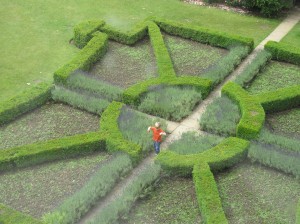Since my last Musings, I’ve continued to think about success, about accumulation, about consumption, about letting go — and I have come to the conclusion that I am really asking myself about identity. What constitutes identity? Is there some kernel of being that is uniquely me, separate from the family in which I grew up, the friends who have blessed me with their love, the teachers and mentors who have forged the path ahead of me? Is there an “I” distinct from what I do, what I own, what roles I play? Theologians have been asking this question for years and generations, for millennia. But why should theologians have all the fun?
I don’t have any answers. If you want an answer, you can stop reading right here. The topic of this piece is (im)materialism which I am defining as a way of living that values equally those aspects of existence that are measurable in the material world (having a good meal, for instance) and those that are not (having a good conversation). It doesn’t say that one kind of experience is better than the other. . .I am not going to get into the spirit vs. body debate because I don’t see spirit and body as opposites. So (im)materialism is not non-materialism as if the material world is bad or less.
 So, I don’t have any answers, but I am finding myself fascinated by some questions. And here they are — just the questions, no conclusions yet.
So, I don’t have any answers, but I am finding myself fascinated by some questions. And here they are — just the questions, no conclusions yet.
When does ‘networking’ become consumption of human connections rather than the human connections themselves?
When does collecting experiences become an end in itself rather than a way of growing, of stretching one’s heart, of opening one’s mind, of simply being present to opportunity? I am thinking of books like 1000 Places to See Before You Die — is it just a self-help guide for “experience accumulation?” the ultimate bucket list? an interesting directory of places you never even knew about? or does it depend on how you use it?
Should education continue to tilt toward the gathering of facts rather than the ripening of knowledge? They are not mutually excessive, but they require very different investments of time and space and silence.
And how much are my answers determined by the pace of life (by speed) and by the instinct (if it is an instinct) toward quantity over quality? If I can get an instant answer in 2 keystrokes on my smartphone, and I can therefore answer 10 questions in a minute, do I have the time to ask myself whether any of those “answers” are, in fact, valid? Or do I just accept what I have been told?
It feels like every one of those questions puts me on the fulcrum between materialism and (im)materialism, between the over-valuing of what culture tells me is of measurable value and the possibility that something less measurable is of equal value.
I think that will keep me busy for the next week.
–Andrea
© 2014, Andrea La Sonde Anastos